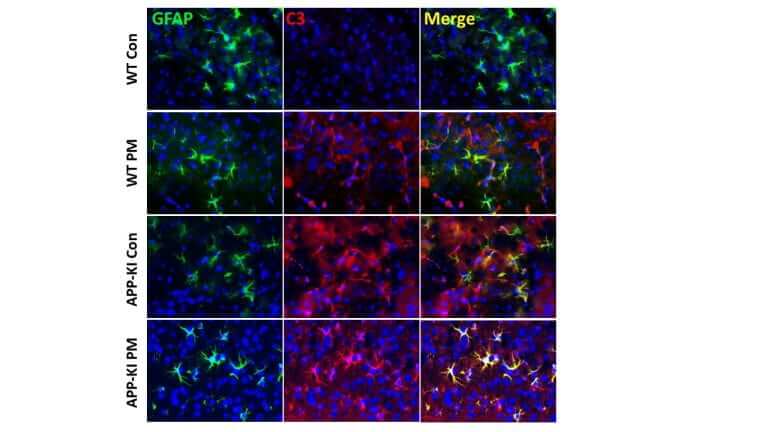Researchers from the University of California, Irvine have discovered that exposure to air pollution from traffic in Irvine resulted in memory loss and cognitive decline. It also triggered neurological pathways associated with the onset of Alzheimer’s disease.
According to Masashi Kitazawa, Ph.D., associate professor of environmental and occupational health in UCI’s Program in Public Health and the corresponding senior author of the study, “The connection between air pollution and Alzheimer’s disease is worrying because the presence of harmful substances in the air is not only increasing globally but also affecting our local area in Irvine. Our findings demonstrate the impact of particulate matter on brain function.”
The study’s findings were published in the journal Toxicological Sciences.
Alzheimer’s disease, which is the leading cause of dementia among the elderly, has become a growing public health crisis in the United States and other countries. Despite extensive research, the exact origins of the disease remain unknown. While genetic factors are known to contribute significantly to disease progression, there is mounting evidence suggesting that environmental toxins, particularly air pollution, may initiate the onset of Alzheimer’s disease.
Kitazawa and his team conducted a comparison of mouse models at two different ages. They exposed a group of mouse models aged 3 months and 9 months to ultrafine particulate matter collected from the ambient air in Irvine over a 12-week period. Another group was exposed to purified air. The differing ages were chosen to assess the potential impact of particulate matter exposure during vulnerable stages of life: early development and old age.
The researchers conducted tests related to memory tasks and cognitive function and observed that exposure to particulate matter impaired both aspects. Significantly, they also noticed an increase in brain plaque accumulation and glial cell activation, which are associated with inflammation linked to the onset of Alzheimer’s disease, in the older models (12 months at the time of analysis).
Michael Kleinman, Ph.D., adjunct professor of environmental and occupational health in UCI’s Program in Public Health and a co-author of the study, stated, “Air pollution is one of the few prominent environmental risk factors in Alzheimer’s disease that can be modified. Public and environmental regulatory agencies need to accelerate their efforts to reduce particulate matter levels to mitigate the risk of Alzheimer’s disease and other serious health conditions.”
Kitazawa emphasized the importance of taking action based on this evidence, stating, “This evidence is alarming, and it is crucial that we implement effective and evidence-based regulations, raise awareness about lifestyle changes, and work together to improve our air quality.”
The study received support from the National Institutes of Health through grants R21 ES028496 and RF1 NS130616, as well as the UCI MIND’s Women’s Alzheimer’s Movement Women’s Initiative grant.
Additional authors of the study include Jason G. Kilian, Marina Mejias-Ortega, Heng-Wei Hsu, David A. Herman, Janielle Vidal, Rebecca J. Arechavala, Samantha Renusch, Hansal Dalal, Irene Hasen, Amanda Ting, Carlos J. Rodriguez-Ortiz, Siok-Lam Lim, Xiaomeng Lin, and Joan Vu, all of whom are currently or were previously affiliated with the UCI Program in Public Health’s Department of Environmental and Occupational Health. The study also involved professor Takashi Saito from Nagoya City University in Japan and team leader Takaomi C. Saido from the RIKEN Center for Brain Science in Wako, Japan.


